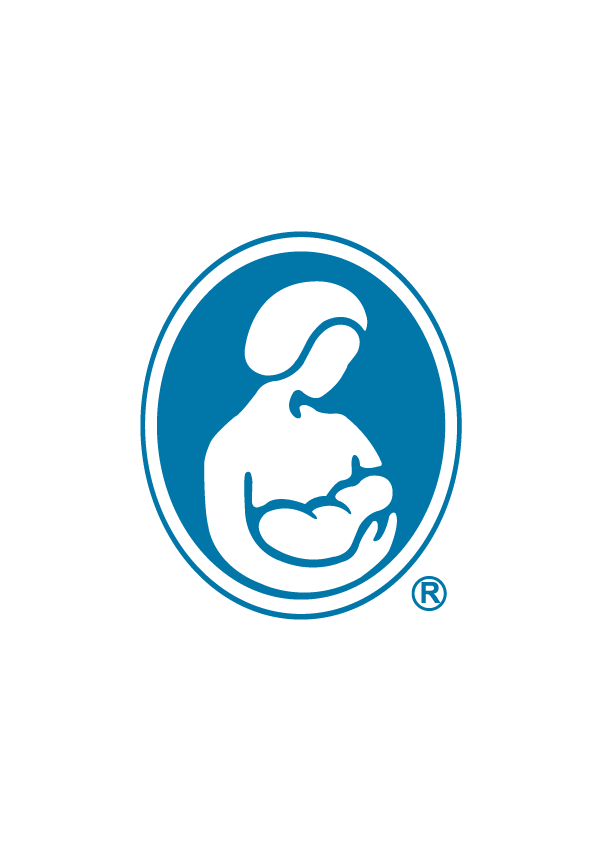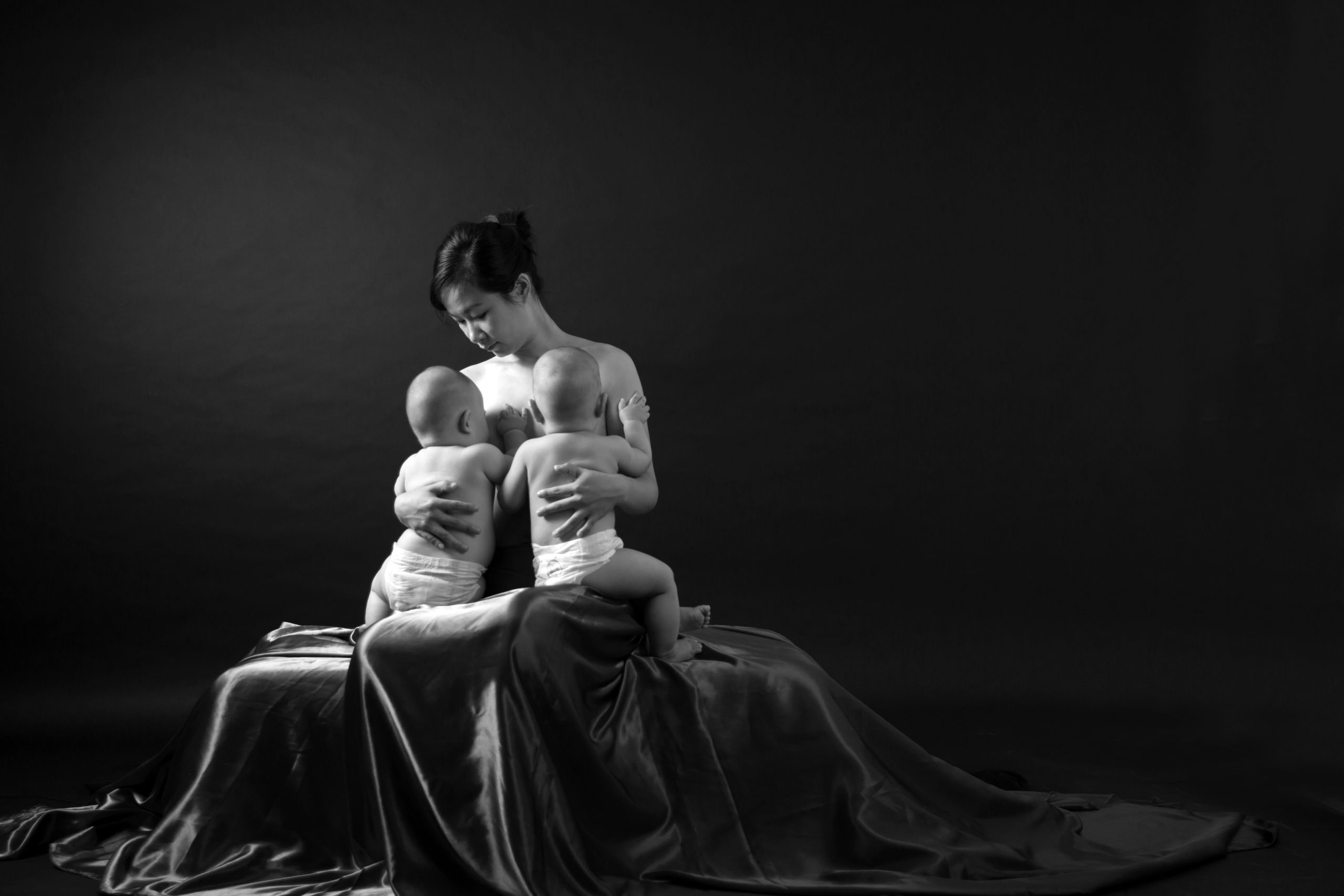谁能想到,
我们身边时时刻刻有孩子,
可是当妈妈的过程却让我们感觉那么孤单呢?
我们想象着自己宁静地注视着那个美丽、安静的宝宝,感觉自己还是那个没有孩子之前的自己。对于一些人而言,产后的时间真的就是每时每刻和孩子黏在一起,享受着那熠熠生辉的可爱瞬间;而对于另一些人而言,这段时间真的是折磨!
最初几天的哺育心得基本能用一个词来很好地总结,那就是:没完没了。分娩过程很可能就是没完没了的漫长,喂起奶来也是没完没了,身体也感觉到没完没了的疲倦,而作为妈妈的责任更是任重而道远,需要投入的爱更是惊人。
这一切都会让你感觉天旋地转。我可没有开玩笑!我说的都是真的。那些产后荷尔蒙仿佛一记重拳,让你感觉如此的奇怪,就好像不再是从前那个自己了,而同时又和你的新角色割裂了,产后居家恢复的时候感觉到孤单,独自坐着给宝宝喂奶,也感到孤单。
在一个宝宝诞生之后,西方社会通常会期待女性很快恢复到产前的状态。而在全世界范围内,妈妈和宝宝在产后最初的几天会得到多得多的支持,这样妈妈和宝宝可以很快地找到彼此的节奏,充满信心地适应对方。
引用叶安﹒苏﹒金﹒戈德温在其论文“非西方文化里的产后信念及产后适应过程”中所提及的:在全世界范围内,围产期通常受到保护和重视,这都是深深植根于其所在的文化信念中的。
以下摘录自金﹒戈德温的论文(2003年首次发表在“美国母婴护理杂志”的三月/四月刊上),着重讨论了文化差异,尤其是东西方产后护理的差异。
按照传统的非西方观点,生育是整体和个体系统的一个部分,会涉及道德价值观、社会关系、与环境的关系及生理等方面。在这种文化中,人们通过生育仪式来表示对这一事件的重视。人们会准备一些特色食物来表达对于母亲的赞赏,同时也象征着一个新生命进入了这个家庭或者族群。
与此相反,西方社会的产后护理是建立在生物医学模式的基础之上的。在西方社会的认知框架中,怀孕是可以由医生来管理的,他们担任着专业医学和产科人士的角色。按照戴维斯﹒弗洛伊德(1997)的说法,西方社会传递给美国女性的信息是,一个女性的角色远不如生产过程中医生的角色重要。而在孩子出生后,更多的礼物和祝福也是围绕着新生儿而不是妈妈(比如:新生儿洗浴聚会,施洗礼,亲戚朋友来拜访探望宝宝等等)。有趣的是,虽然在许多西方国家,女性的社会地位要比在非西方国家高很多,但在产后,美国的新妈妈们得到的关注却是较少的。
也许我们可以从非西方国家的文化传统中获得一些启示:比如重视产后初期的母婴亲密时光,尊重女性的身体,促进母婴之间的连接,这些都会帮助西方的女性从之前的角色更顺畅的转变为妈妈。
在《母乳喂养的女性艺术》(中译本)这本书中,讨论了人类想要构建属于自己的关系网络这一天生的需求。在部落社会中,人们会赞美母亲,给予支持,在这样的过程中,妈妈们就产生了对于抚育孩子和母乳喂养的自信心。部落的女性们会见证妈妈哺育宝宝的每一个阶段,从刚开始的乳头酸痛,到怀抱着不停扭动、能够做出各种杂技动作的半岁宝宝,再到吃奶的学步儿走到妈妈的怀抱寻求抚慰。而对于许多西方国家的妈妈而言,母乳喂养的哺育过程让人感到被隔离,整个过程很容易让妈妈感觉到远离人群,不够自信而且感到孤独。
*国际母乳会。可以登录www.llli.org(中文网站www.muruhui.org),寻找你附近的支持机构,那里是妈妈互助支持的港湾。
*基于医院的泌乳支持机构。通常这些组织机构会向每一位妈妈开放,并且完全免费,哪怕你并不是在那家医院分娩生产的。
*图书馆也经常举办免费的婴儿音乐课程和绘本阅读课程。
*在线支持。你会有可能在任何一个地方找到来自社区的妈妈互助在线支持网络,比如一起协助举办幼儿游戏组,聚餐等等。
运动会改善你的情绪,减少压力。你可以用背巾背着宝宝,或者用推车推着宝宝外出散步,新鲜空气会让你和宝宝都感到平静和愉悦。在最初的几天里,你就好像和你钟爱的那把哺乳椅子黏在了一起,环顾四面墙壁看着时间滴答滴答走过去,所以适当的改变一下环境会出乎意料的带来帮助哦!
和宝宝一起睡觉。真的要去试试哦。真的!当你经历一夜无眠后,能够小睡一会儿会让你拥有完全不同的看法。日间的偶尔打盹对于一个疲倦不堪的新妈妈而言,更是妙不可言。
知道什么时候需要求助医生。新妈妈的角色转变会带来一种无法抗拒的不安。很多新妈妈发现,她们一直在问自己:我的生活会一直这样了吗?我到底是开始了什么样的生活?我什么时候才能真正的重新做回自己呢?这些问题特别的普遍,感觉自己好像也是这样想的,这更是没什么奇怪。在几周或者几个月后,当你开始找到自己的最佳状态时,这些感受会慢慢的消散。尽管如此,如果母乳喂养和哺育孩子的过程并未带来任何的愉悦,而且焦虑和不快一直在持续的话,也许你真的可以和你的医生好好谈一谈。
美国国家心理健康研究所称,有80%的女性有不同程度的产后沮丧情绪,而15个妈妈中间就有一个正经历着产后抑郁。尽管这是一段孤独的不知所措的时光,却不是仅有你在挣扎。你绝不孤单。这听起来不可能。也许敞开心扉和其他妈妈分享这些经历,会由于太过于深入而很容易感受到痛苦和脆弱,但是这正是现在没有被充分探讨过的一个重要话题,也正是让许多新妈妈感到孤独和挣扎的话题。让我们一起把这个话题拿出来认真探讨一下。哪怕你正在经历着艰难的产后时光,你也不必孤身面对。
来吧,找时间放松一下,像照顾孩子一样照顾自己,来看看是否可以把新妈妈抚育孩子的过程中那些负面的,不可抗拒的,孤独的部分转变到积极的一面。从开始建立属于你的自己的支持网络开始吧。最好的开始就是本地的国际母乳会小组。他们会提供优质的支持,很好的激发你的母亲本能,会让你感到更有力量,让你对那个美妙无比的宝宝充满爱意,让你们牢牢的彼此链接,让你深深的觉知自己的本能,让你对自己无比自豪,而且会惊叹于身体所能做到的一切。
Who would have thought that motherhood could feel so lonely despite being surrounded by little ones all the time?
It is a conundrum: wanting to be with our babies all the time, but also feeling is olated by our new mothering roles. Often, before becoming mothers, we imagine those early days with our new borns as an air brushed, blissful mirage. Weenvision ourselves quietly gazing upon our beautiful, peaceful babies and still feeling like our pre-baby self. For some, the post partum period is just that: aglowing, lovely time to drink in every moment with baby. For others, it is areal struggle.
Mothering in the early days can be best summed up in one word: more. The birth might have been more difficult, breastfeeding more time-consuming, the exhaustion more over whelming, mothering responsibility might feel more demanding, the love more breathtaking. All of it might leave you feeling as though your head is spinning. And, who’s kidding who? Those postpartum hormones can pack aserious punch, leaving you feeling rather strange—like a stranger to your oldself, isolated in your new role, isolated inside your house as you heal,isolated as you sit alone and breastfeed your newborn.
Afterbaby’s birth, Western society often seems to expect women to jump right back into their pre-baby roles (and their old jeans while they’re at it). Postpartum practices around the world are much more supportive of the mother-baby dyad in the early days, and as a result, mothers and babies start off with a better chance to find their own footing and make their own way with confidence.According to the article “Postpartum Beliefs and Practices Among Non-WesternCultures,” by Yeoun Soo Kim-Godwin, PhD, MPH, RN, the postpartum period in many worldwide cultures is protected and valued through deep-cultural beliefs.
This excerpt from Kim-Goodwin’s article (originally published in the March/April 2003 issue of The American Journal of Maternal/Child Nursing) discusses some ofthese cultural differences:
Some Differences Between Western and Non-Western Postpartum Practices
In the traditional non-Western view, birth is part of a holistic and personal system,involving moral values, social relations, and relation to the environment, as well as the physical aspects. Birth ceremonies often are used to recognize the importance of the event in the culture (Leininger, 1995). Special foods are prepared to express the reward of motherhood, as well as to symbolize a newbaby’s entry into the family and community (Callister & Vega, 1998;Leininger, 1995).
In contrast, Western postpartum practices are based on the biomedical model. In a Western framework, pregnancy might be “managed” by a physician who performs a special medical or obstetrical role (Lauderdale, 1999). According toDavis-Floyd (1997), the message conveyed to American women is that the role of the woman is less important than that of the physician during birth. Gifts and celebrations are centered around the new born rather than the mother (e.g., babyshowers, christenings, visits from friends and relatives to see the baby)(Lauderale, 1999). It is interesting that women’s status has been considered relatively higher in Western cultures than in non-Western cultures, yet paradoxically less recognition seems to be given to new mothers in the United States.
Perhaps taking a few of these cues from non-Western cultures—considering the postpartum time to be sacred, honoring the body of the woman, and fostering the mother-baby connection—would help smooth the transition of the Western womaninto motherhood.
The Womanly Art of Breastfeeding discusses our hardwired human desire to createnet works for ourselves. Tribal communities celebrate and support motherhood,and in the process foster mothers who are confident in their mothering and breastfeeding skills. Tribal women have observed mothers and babies nursing through all stages, from the newborn’s mother with sore nipples, to the acrobatic six-month-old, and beyond that to a nursing to ddler finding his way back to his mother for comfort. Because the mothering-breastfeeding journey is often a little more secluded for Western mothers, the mothering journey can easily feel a little more isolated, unsure, and lonely.
Here are some ideas to help establish a support network.
Create community. Finding a network of support can make all the difference. Talking with other women going through the same life transition can be reassuring and reenergizing.
Getting out might feel over whelming. You only have so many arms and so much controlover last minute feedings and extra diaper changes. Allow extra time to get out the door, and remember that practice makes progress. It will get easier.Finding other new mothers to talk with about the huge life changes that arrive along with baby can be comforting at the very least, and if you’re lucky, can also be intensely the rapeutic. Here are some bring-baby-along resources to try:
*LaLeche League. Check out www.llli.org to find a Group nearby. They are a haven of mother-to-mother support and encouragement.
*Hospital-basedLactation Support Groups. There are a growing number of these that are often free and open to all mothers, even if you didn’t deliver at that particular hospital.
*Libraries often hold baby music classes or story times for free as well.
*Online Support. Community online mothering support networks are popping up all overthe place. Many coordinate playgroups, dinner swaps, and more.
Exercise helps to boost your mood and reduce stress.Wear baby in a carrier or get out the stroller and go for a short walk. The fresh air might calm both you and baby. In the early days, it can feel as though you are becoming permanently attached to your favorite nursing chair.Looking at the same four walls gets old pretty quickly. The change of scenery helps more than you’d think.
Sleep when baby sleeps. And really do it. Really. A little sleep when struggling with sleepless nights can provide a whole newperspective. Day time naps can be a beautiful thing for the tired new mother.
Know when to see your doctor. The transition to new motherhood can feel unsettlingly over whelming. Many new mothers find themselves asking, “Is that what my life will always feel like now? What have I gotten myself into? Will I ever feel like myself again?” These questions are normal,and feeling your way through them is normal too. Often these feelings evaporate after a few weeks or months as you find your new groove. However, if breastfeeding and mothering don’t feel like any fun at all, and the anxiety and unhappiness persist, it might be time to talk to your doctor.
According to the National Institute of Mental Health, 80 percentof women struggle with some form of baby blues, and 1 in 15 mothers experience postpartum depression. Even though this might feel like a lonely and over whelming time, you are not alone. Not by a long shot. Opening up about your experiences with other mothers might feel too close to a raw and vulnerable nerve, but this is a topic that is vastly under-discussed, leaving many new mothers alone and struggling. Let’s bring the topic out of the closet. Even if you are experiencing a difficult postpartum period, you don’t have to be alone.
Take time to breathe, mother the mother, and see if you can’t turn the negative,overwhelming, and lonely parts of new motherhood into positives. Start by building yourself a community network. A great place to start is with a localL a Leche League Group. Quality support that encourages your mothering instincts can help you to feel more empowered, more enraptured by your amazing baby, morebonded, more in touch with your intuition, and more proud of yourself and amazedat what your body can do.
作者|Jean Merrill,Maryland
翻译|昱瑾
审校|Hetty,Daisy

